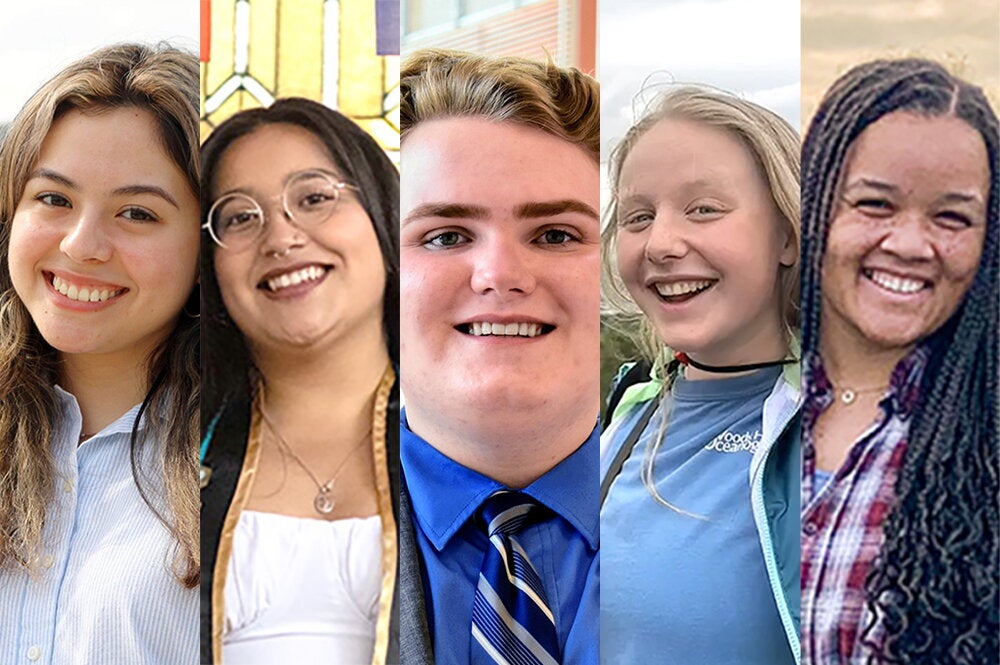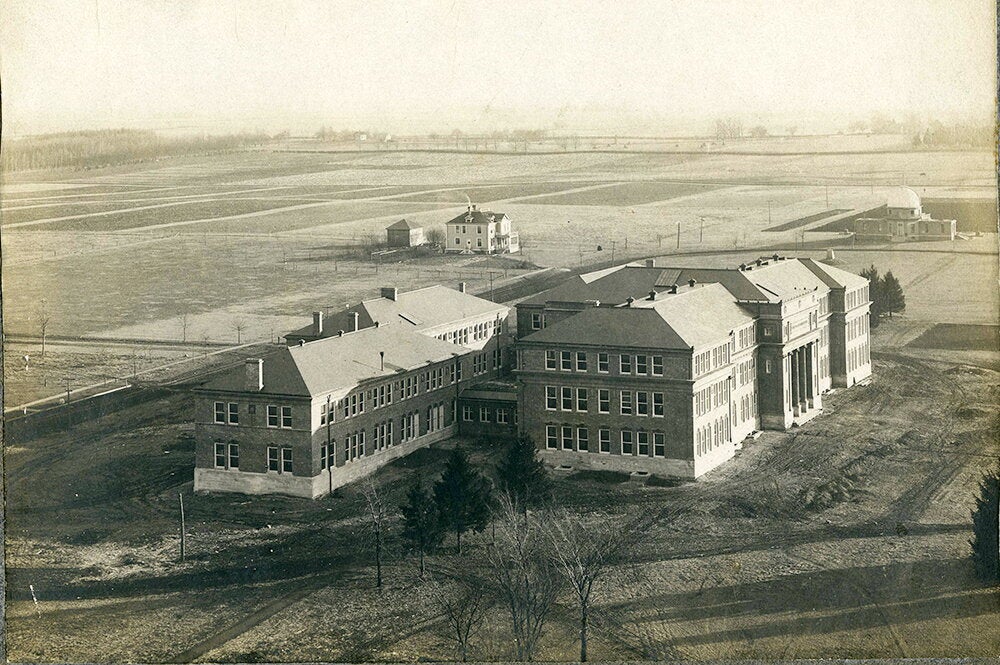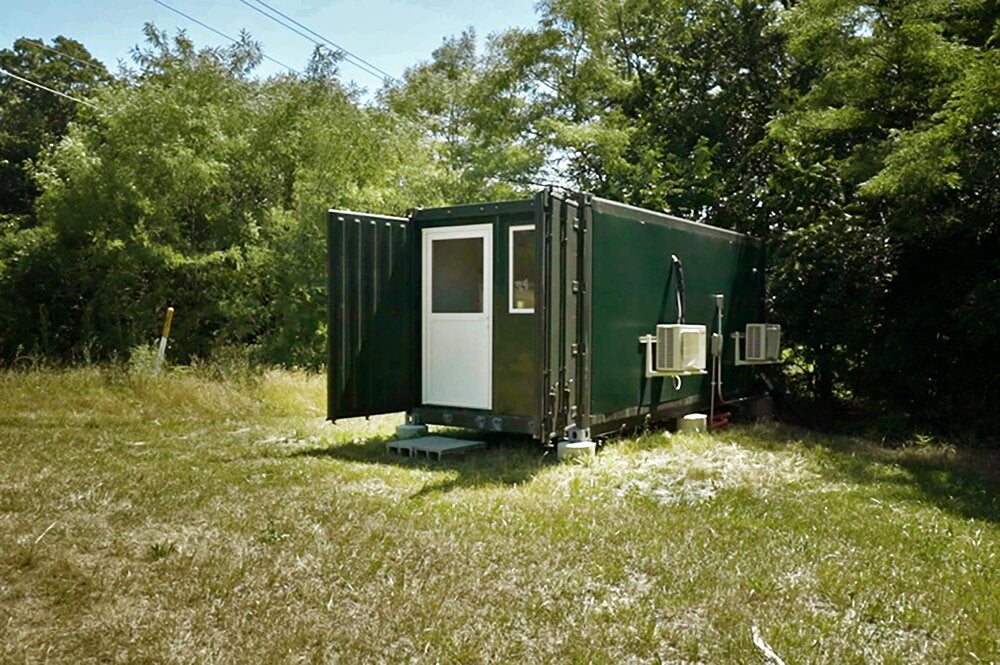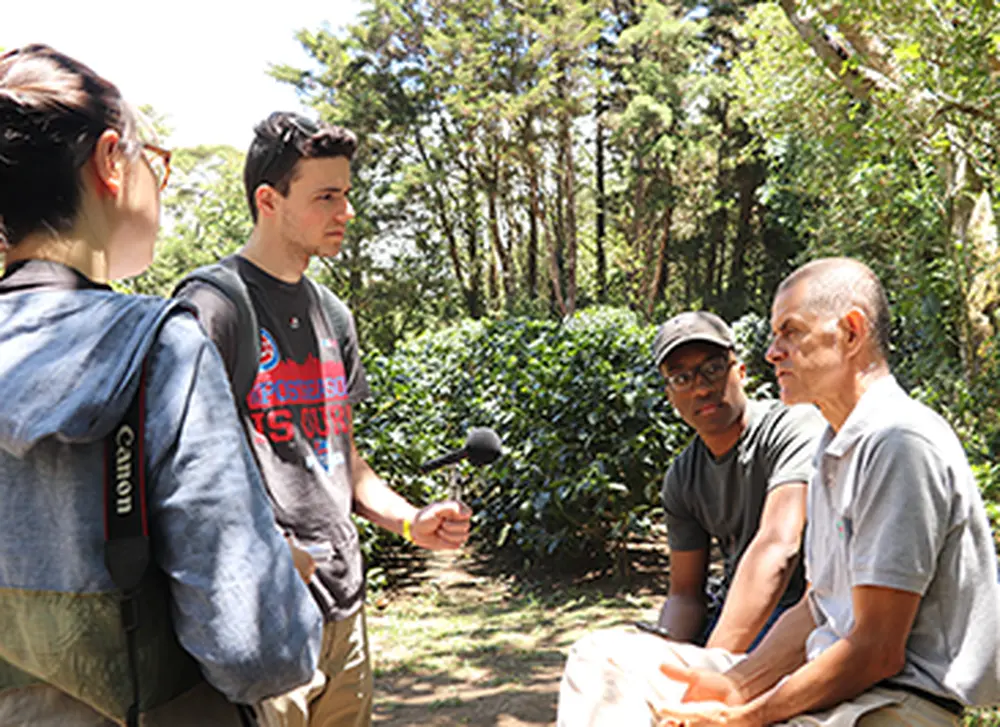
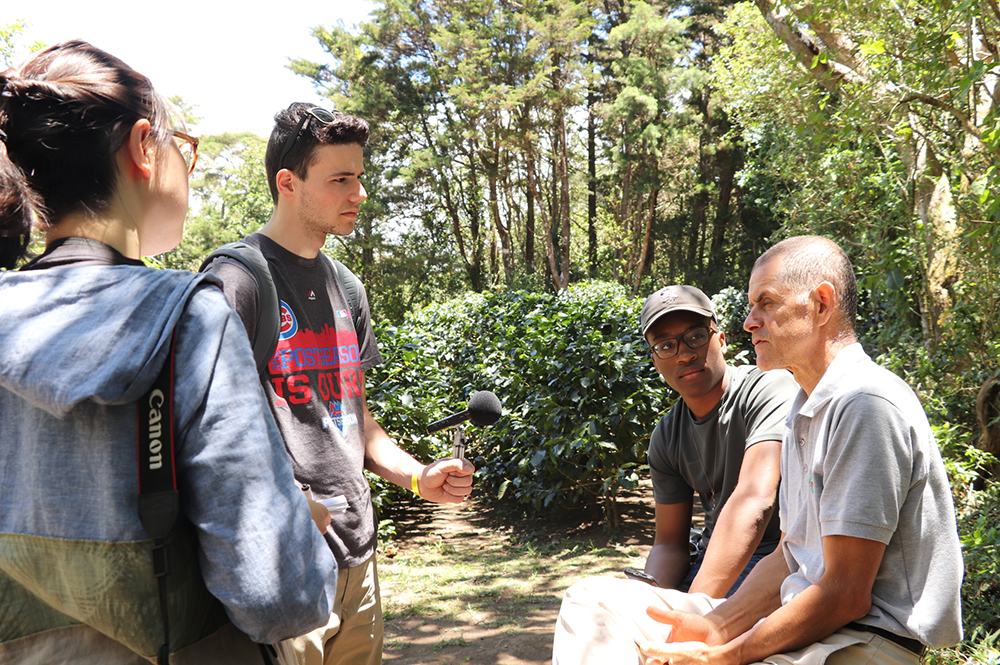
Nineteen Illinois students experienced a unique spring break this year with help from donors to the College of LAS: They traveled deep into the communities and landscape of Costa Rica and came back with knowledge that can only come from a special kind of immersion in the everyday dealings of the environment and the people who sustain it.
They were part of the School of Earth, Society, & Environment’s ongoing field course, “Environment and Sustainability Field Expedition,” which featured Costa Rica as a case study to examine environment and sustainability issues. Topics include studies in rainforest ecology, land-use issues, sustainable agriculture, global versus local economies, and geologic features of the landscape. The class involves an eight-to-nine day field trip to Costa Rica over spring break for further exploration and study of these topics
Participants in the course are generally split between students in the Earth, society, and environmental sustainability major and students from Allen Hall. Students design and execute projects during this trip that look at Costa Rican sustainability through a wide variety of lenses.
SESE clinical associate professor Rob Kanter said that the diversity of interests between the ESES students and Allen Hall students make for plenty of unique projects.
“We have students with a variety of interests,” Kanter said. “Some of our students are interested in the natural world from a biological standpoint, so we have a student who designed a project where she was looking at soil pH. But our major also has students who are interested in communication, so we had a student do a podcast called ‘This Costa Rican Life,’ about one of the social aspects of sustainability and environment, which includes how people live together.”
That student was Ryan Grosso, a junior in ESES. His podcast detailed the life of a Quaker, Marvin Rockwell, who, along with other Quakers from Alabama, left the United States in 1950 and founded the Costa Rican community of Monteverde.
“Some members of our class had the opportunity to sit down with (Rockwell) and hear his story,” Grosso said. “I wanted to tell his story because it is unique. Oftentimes, we think of people settling in an area like this and the results are devastating: they might destroy the environment and harm the culture around them. In the case of the Quakers, however, they did what they could to conserve parts of the rich environment around them and foster healthy relationships with local people.”
The trip has proven to leave a lasting impact with the students who partake. Kanter said that this course is one that his graduates regularly cite as a “transformative experience,” and Grosso agreed.
“The trip was incredibly impactful,” he said. “While I was a bit nervous at first, our hosts (The Monteverde Institute) made us feel right at home and comfortable in an unfamiliar land. The instructors, both Rob Kanter and Laura Haber, the director of Allen Hall's education program, were incredible leaders through the whole course and guided us through this special learning experience. I would highly recommend the course to anyone, as it provides a context for sustainability I have not received in a class before.”
Though this trip provides a rich educational and cultural experience for students, it also requires a course fee of around $3,000 for meals, lodging, transportation, and plane tickets. This year, the school used the Glenn R. and Susan B. Buckley Endowment Fund, which was set up by Glenn Buckley (PhD, ’73, geology) and his wife, Susan (MS, ’72; PhD, ’75; geology) to assist students.
“We do everything we can to minimize the costs, but this is international travel, and it’s an extended period of time,” Kanter said. “Students have been having more difficulty affording the class from one year to the next, and this year we committed some of the money from the Glenn R. and Susan B. Buckley Endowment Fund. Students who wouldn’t have been able to have the experience were able to because of this fund.”
The award was granted to seven students this spring semester, and though this is the first year that the course received this aid, Kanter says that the endowment remains an option in the future.
